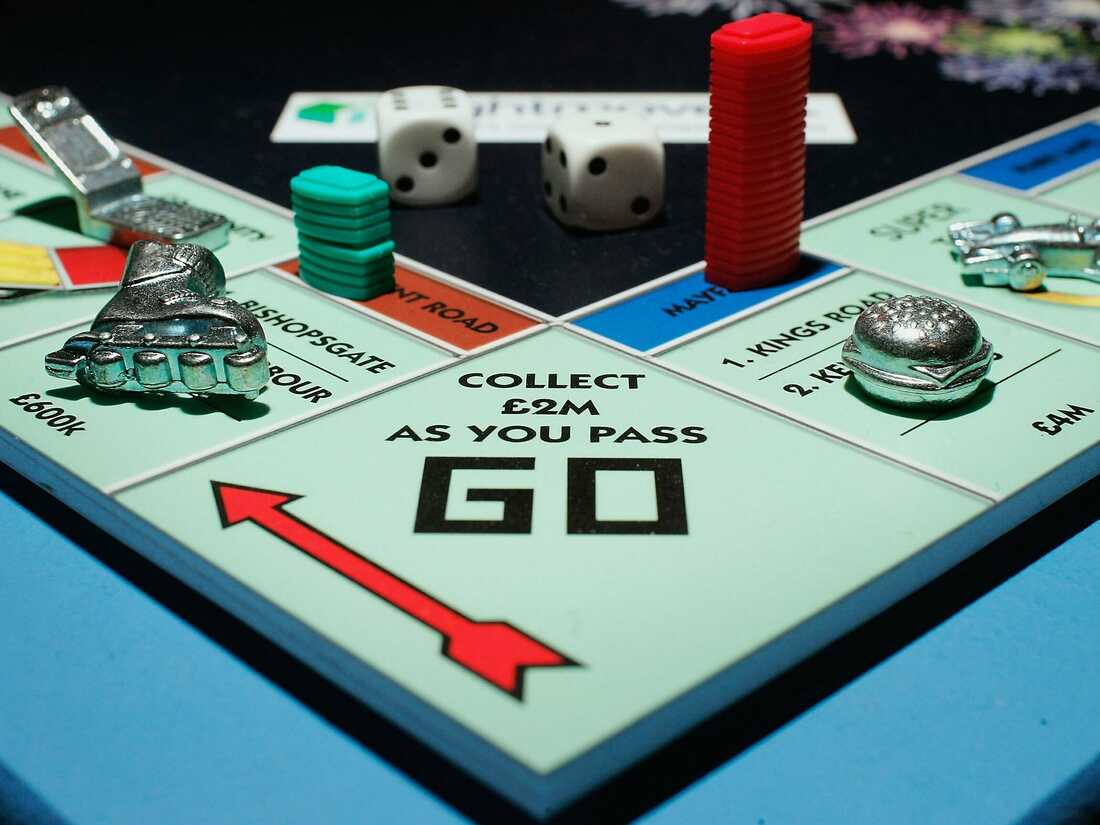
Bruno Vincent/Getty Images

Bruno Vincent/Getty Images
Monopoly is one of the best-selling board games in history. It's been an iconic part of American life: a cheap pastime during the Great Depression; a reminder of home for soldiers during WWII; an American export during its rise as a global superpower; and a best-seller during the pandemic.
The game's staying power may in part be because of strong American lore — the idea that anyone, with just a little bit of cash, can rise from rags to riches. Mary Pilon, author of The Monopolists: Obsession, Fury, and the Scandal Behind the World's Favorite Board Game, dug into the origin story that was once included with every box of the game: A man named Charles Darrow was unemployed and came up with the game to pass the time. He brought Monopoly to the game company Parker Brothers in 1934 and eventually became a millionaire.
But there's another origin story – a very different one that promotes a very different image of capitalism. (And with two sets of starkly different rules.) That story shows how a critique of capitalism grew from a seed of an idea in a rebellious young woman's mind into a game legendary for its celebration of wealth at all costs.
This episode was made in collaboration with NPR's Throughline. For more about the origin story of Monopoly, listen to their original episode Do Not Pass Go.
This episode was produced by Emma Peaslee, mastered by Natasha Branch, and edited by Jess Jiang.
The Throughline episode was produced by Rund Abdelfatah, Ramtin Arablouei, Lawrence Wu, Laine Kaplan-Levenson, Julie Caine, Victor Yvellez, Anya Steinberg, Yolanda Sangweni, Casey Miner, Cristina Kim, Devin Katayama, and Amiri Tulloch. It was fact-checked by Kevin Volkl.
Music by Drop Electric.
Help support Planet Money and get bonus episodes by subscribing to Planet Money+ in Apple Podcasts or at plus.npr.org/planetmoney.
Always free at these links: Apple Podcasts, Spotify, Google Podcasts, NPR One or anywhere you get podcasts
Find more Planet Money: Twitter / Facebook / Instagram / TikTok our weekly Newsletter.